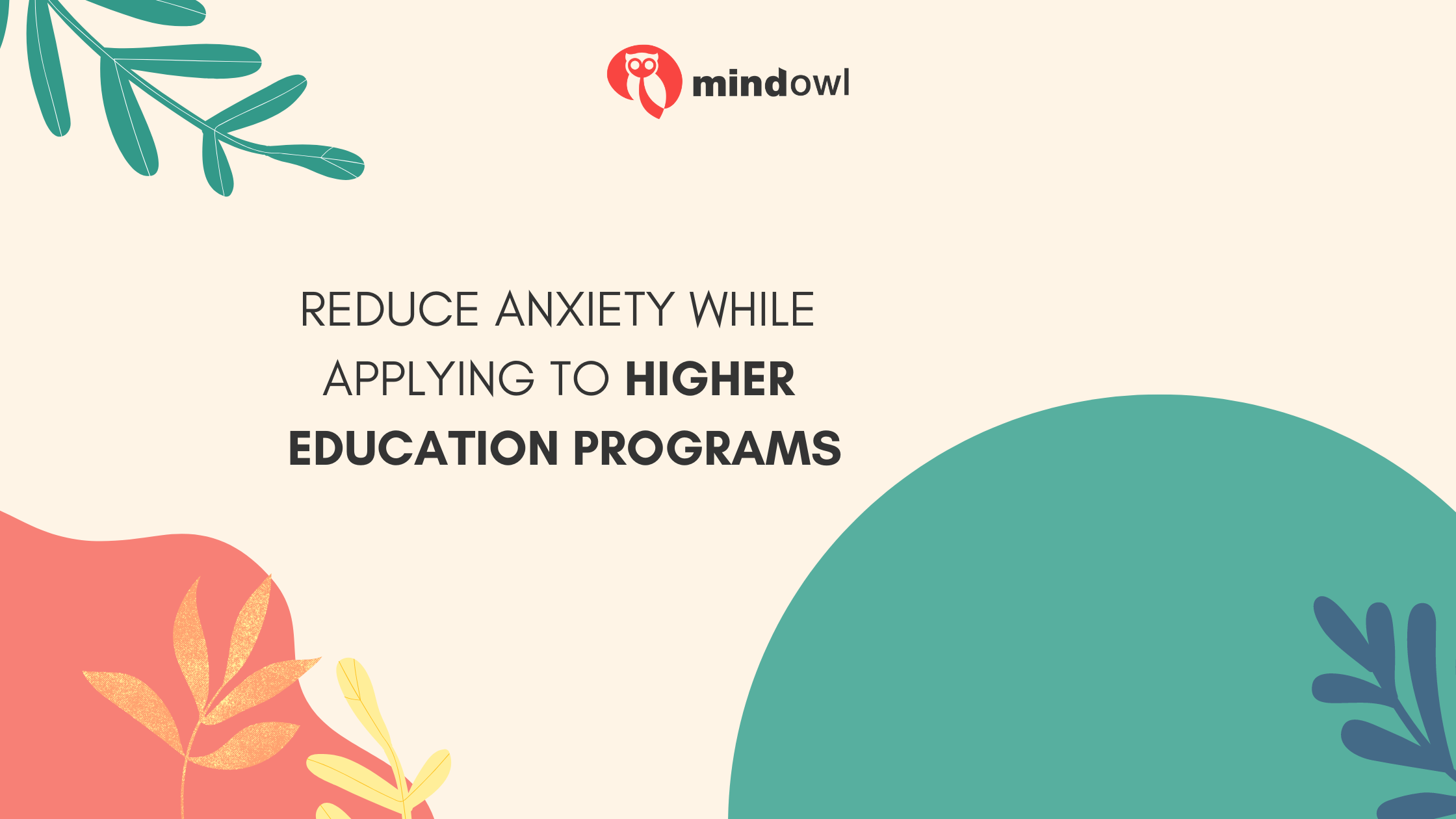Applying for college and graduate school is exciting, but also full of stress. Many people worry about getting into their dream schools or qualifying for scholarships that will make the experience affordable. These are valid concerns.
What isn’t valid? Spending six months agonizing over it. When applying for college, the key is to keep calm and carry on. In this article, we provide tips for managing the application process and keeping your negative emotions in check while you do it.

Start eWarly
One of the best things you can do for yourself is to begin the process early. For people applying to college, it’s often a good idea to begin your search during your junior year of high school. It is at this point that many high school students make their first college visits.
It is also when they begin to tighten up their applications. If your grade point average could use some work or you are trying to pad your résumé with clubs and service projects this is the time to do it.
While there are stories of people making Hail Marys their senior year there isn’t going to be much time. Keep in mind that most people send their applications out in the fall of their senior year, putting a bigger emphasis on the achievements you make in your first three years.
You don’t have to have it all figured out your junior year. Still, identifying your application’s weak points and also just getting a good idea of which programs you find interesting is a great way to take the pressure off your senior year.
College is a big investment of both time and money. You don’t want to make any hasty decisions.
Keep Your Mind Open
It’s also a good idea to take into consideration the wide variety of options that are out there. While many high schools emphasize brick-and-mortar programs, there are a wealth of online or hybrid options to consider as well.
These opportunities are just as comprehensive as traditional learning environments and often are available at a small fraction of the price.
Remember that, though the sticker price of college can be overwhelmingly expensive, there are lots of ways to do it. Community college. Trade school. Online programs. Look for the route that makes the most sense to you.
Research Programs
Most colleges specialize in specific career pathways. While Hypothetical University may offer many degrees, they might have particularly good resources dedicated to their nursing program. Or their education program. Or their business program.
Get the picture? If you already have a good idea of what career path you are interested in, look for schools that specialize in that discipline.
Be Communicative
The college admissions department exists for a reason. It’s filled with people whose actual job is to answer your questions. If you are concerned about something—anything—ask them about it.
Many high school students forget that they have power in the college recruitment process. Yes, the university decides who gets admitted. However, the relationship between school and student is ultimately symbiotic.
You want their degree. They want your money.
Treat college the way you would any other major purchase. Ask your questions. Do your research. Be an assertive, discerning buyer.
Practice Mindfulness
Anxiety is normal. That said, it doesn’t have to dominate your life. Focus on developing habits that promote inner peace. This includes:
- Breathing exercise: Draw in breath for five seconds. Hold them for five seconds. Exhale for five seconds. While you do this, try to focus only on the breath in your body. Doing this for just a few minutes every day can create lasting relaxation benefits.
- Muscle Tension: Another good mindfulness exercise is to tense your muscle groups, starting from the top of your body and going all the way down to your toes. Hold the tension for several moments, then slowly relax your muscles. This will produce feelings of relaxation.
- Sensory awareness: Spend a few minutes each day focused only on your sensory experience. What can you hear? See? Smell? Feel? This will ground you in the present.
Stress is a product of what psychologists call past/future orientation. The stressed-out person is usually either upset about something that already happened, or worried about something that will happen in the future.
Past/future orientation is not always bad. Thinking about what has happened before can help you avoid repeating mistakes. Worrying about something that will happen in the future can help ensure that you spend enough time preparing for it.
Moderation is key. When these feelings begin dominating your life, use mindfulness techniques to ground yourself in the current moment.
Self-Care
Self-care, though often framed in the context of indulgence, is more about giving your body the stuff it needs to succeed. Good sleep. Proper nutrition. Sustainable habits that contribute to a better emotional baseline.
It’s important to remember that your emotions are just chemical reactions happening in your brain. While you can’t choose your feelings, you can influence them with good habits.
Get at least 8-10 hours of sleep each night. Eat balanced meals. Avoid excessive screen time. Spend time outside, and indulge in hobbies that stimulate creativity. Reading. Writing. Art.
These are all habits that are proven to reduce cortisol—the chemical responsible for stress—levels in your brain.
Conclusion
More than anything else, remember that the college application process represents only a brief moment of time in your life. For better or worse, it will be over and done with in a few months.
Will it be tough? Maybe, maybe not. Most people find that the college application process is easier than they expected it to be. You will get in somewhere. Hopefully, it’s your dream school. If it isn’t, that will be ok too.
Take care of yourself. Manage your stress. Prioritize your mental health. You’ve got this.
MindOwl Founder – My own struggles in life have led me to this path of understanding the human condition. I graduated with a bachelor’s degree in philosophy before completing a master’s degree in psychology at Regent’s University London. I then completed a postgraduate diploma in philosophical counselling before being trained in ACT (Acceptance and commitment therapy).
I’ve spent the last eight years studying the encounter of meditative practices with modern psychology.

